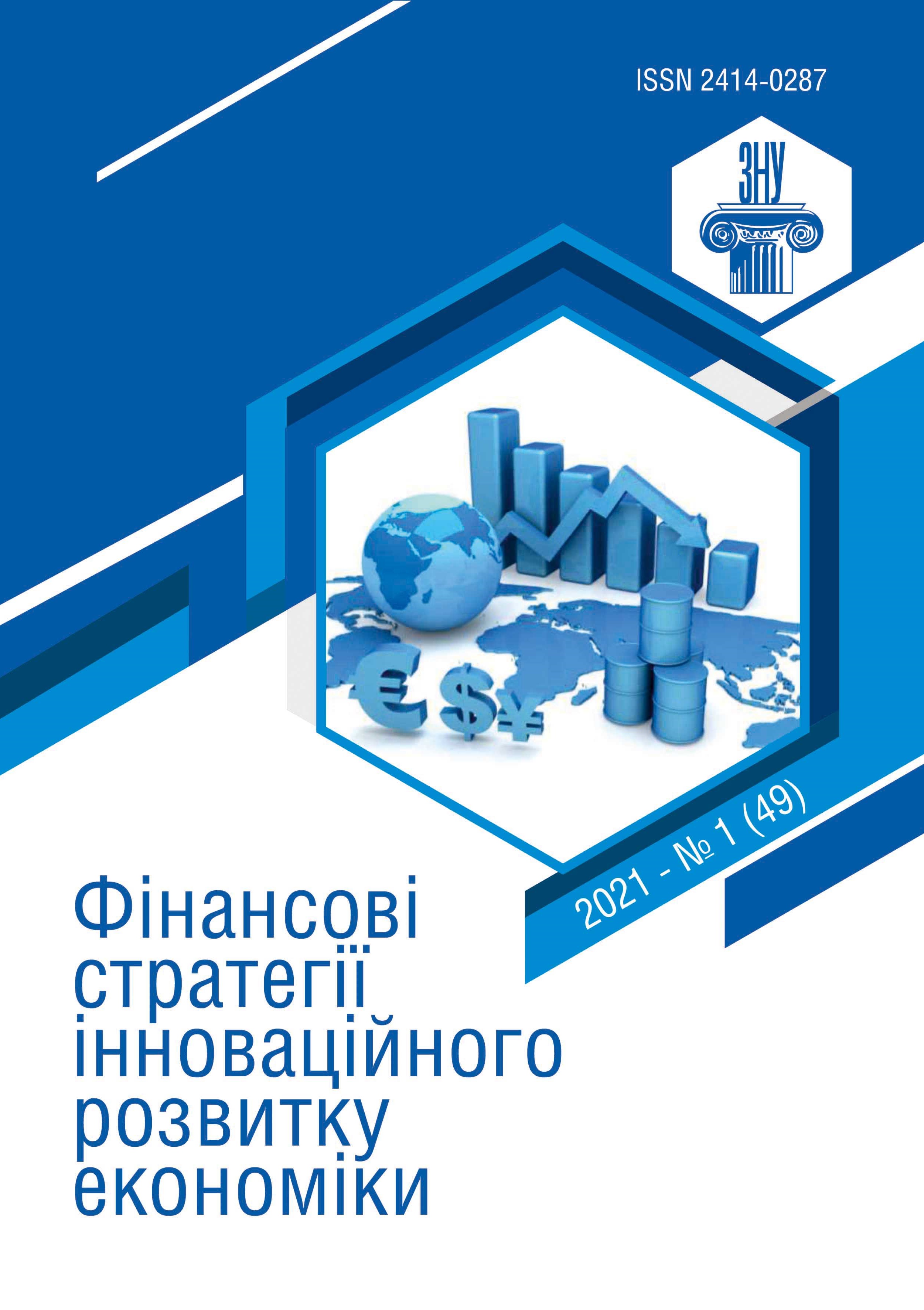ЦИФРОВІЗАЦІЯ ЕКОНОМІКИ ЯК ПЛАТФОРМА СТВОРЕННЯ НОВИХ ЦІННОСТЕЙ В ТРАНСФОРМАЦІЙНОМУ СЕРЕДОВИЩІ
Анотація
Досліджено проблемні питання використання цифрової економіки в реальному секторі. Визначено тенденції розвитку цифрової економіки в Україні та країнах світу. Зазначено можливі сценарії розвитку цифрової економіки в Україні та країнах світу. Обґрунтовано необхідність використання нових інформаційних технологій для оптимізації процесів і виробництва, зниження транзакційних витрат і модернізації своїх ланцюжків поставок, що забезпечить високий рівень конкурентоспроможності країн з розвиненою економікою та економікою, що розвивається. Доведено, що не можливість використання цифрової економіки зі створення, зберігання, обробкою та передачею даних буде перешкоджати прогресу, якщо вони не зможуть подолати структурні проблеми, пов’язані із впровадженням діджиталізації реального сектора. Розвинуто теорію про прискорення цифровізації економіки з урахуванням пандемії COVID-19, російсько-української війни. Запропоновано використовувати асиметричні алгоритми шифрування – здебільшого криптографія водночас шифрує і дешифрує повідомлення Блокчейн, що послуговується відкритими ключами як адресами для транзакцій, які можна реалізувати при наявності закритих ключів. Сучасна система кредитних карток базується на таємності й централізації, який використовують закриті мережі Інтернет, захищені брандмаузерами центри даних, де зберігається особиста інформація сторін.
Посилання
2. Alex Tapscott, Don Tapscott. Blockchain Revolution. Portfolio Penguin. 2018. 432 р.
3. Kibets D.V. Regulation of currency restrictions: international legal doctrine and national practice : monograph. K. : Phoenix, 2019. 186 p.
4. Kohut Y.I. Blockchain Technologies and Cryptocurrency: Risks and Cyber Security : monograph. K. : Sidcon. International Cyber Security League, 2022. 316 p.
5. Prykhodko I.V. Institute of tax amnesty and its place in tax law : monograph. Helvetica Publishing House, 2018. 220 p.
6. Savchuk S.S. International legal standards of banking activity. K. : Phoenix, 2019. 258 p.
7. The first executive academic blockchain program. URL: https://www.reply.com/en/blockchain 8. NFTs – enablers of digital ownership. URL: https://www.reply.com/en/topics/digital-branding/nfts-enablers-of-digital-ownership
9. Ernst Ulrich von Weizsäcker, Anders Wijkmann. Come On! Capitalism, shortsightedness, population and destruction of the planet. Report to the Club of Rome / translated from English by J. Sirosh ; ed. V. Wolf, V. Booth. Kуiv : Summit-Book, 2019. 276 p.
10. Collomb A., Sok K. Blockchain / Distributed Ledger Technology (DLT) What Impact On Financial Sector? Digiworld Economic Journal. No. 103. third quarter 2016. P. 93.
11. Nikitenko V.O., Vasylchuk G.M. The model of the digital city as a factor of creative development. Humanities Studies : a collection of scientific papers / Head ed. A.G. Funnel. Zaporizhzhia : Publishing House «Helvetika», 2022. Issue 11(88). P. 48–58.
12. Buhaichuk Oksana. Foreign concepts of information (digital) economy (Foreign concepts of information (digital) economy. Management and Entrepreneurship: Trends of Development. 2022. Issue 2(20). P. 8–19.
13. Oksana Buhaychuk, Vitalina Nikitenko, Valentyna Voronkova, Regina Andriukaitiene, Myroslava Malysh. Interaction of the digital person and society in the context of the philosophy of politics. Cuestiones Políticas. Vol. 40 Nо. 72. 2022. P. 558–572.
14. Voronkova Valentyna, Kaganov, Yuriy, & Metelenko, Natalia. Conceptual basis of «the digital economy forsite model»: european experience (Conceptual foundations of the «foresight digital economy» model: European experience). Humanities Studies : Collection of Scientific Papers / ed. V. Voronkova. Zaporizhzhia : Publishing house «Helvetica», 2022. No. 10(87). P. 9–19.
15. Gidler George. The decline of big data and the formation of the blockchain economy / per. from English. T. Mykytiuk, P. Donchenko. Kyiv : Force Ukraine, 2021. P. 15.
16. Cherep A.V., Voronkova V.G., Cherep O.H., Vengerska N.S., Beskorovaina L.V. Impact of creative innovative technologies on the sustainable development of the tourism industry in Europe after the COVID‑19 pandemic. Humanities studies : Collection of Scientific works. Zaporizhzhia : Zaporizhzhia National University, 2021. No. 8(85). P. 134–146.







